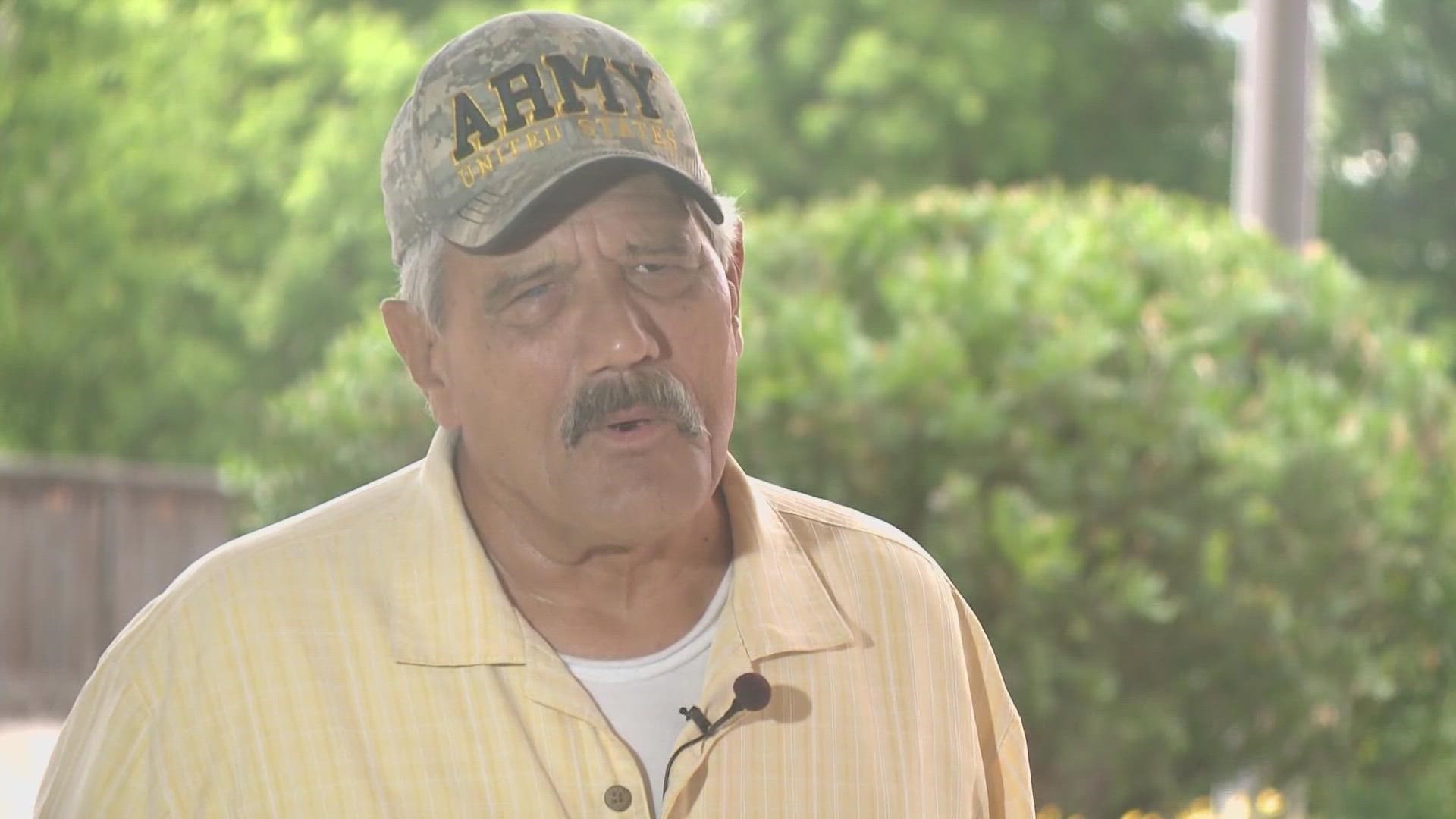SAN ANTONIO — Veterans living at a northwest-side apartment complex are faced with the challenge of finding a new place to live after management announced it was no longer accepting housing choice vouchers.
The federal assistance program helps low-income families, the elderly and disabled people afford housing. Among the impacted tenants is U.S. Army veteran Rick Stover, who has lived at the Cue at Medical Center for the past four years.
“You would think you would try and take care of the vets that put their selves on the line so everyone can sleep at night,” Stover said. “The years up until now have been pretty well, pretty good actually.”
Stover noted not everyone has family or friends to support them financially, especially during unexpected times like this prompted by Austin-based property management.
He emphasizes with his neighbors who might end up homeless.
“I’ve been on the streets before, and I assure you: It’s nothing pretty,” Stover said.
The San Antonio Housing Authority (SAHA) provided KENS 5 a statement addressing Stover’s situation and a call to action.
“The new Austin-based property owner, Arbor Properties, has elected to not accept Housing Choice Vouchers, which is affecting Mr. Stover’s voucher as well as other families. Unfortunately, there is no municipal or state policy that requires private landlords to accept Housing Choice Vouchers. SAHA issued a new voucher to Mr. Stover on June 17, and his VA caseworker has become aware and involved to help him find a new home. Given the housing crisis San Antonio is facing, we call on policymakers to address this source of income discrimination to prevent further displacement from out of town, for-profit housing corporations.”
The City of Austin passed an ordinance in 2014 that prohibits source-of-income discrimination. But the state legislature in response passed a bill banning local municipalities from enacting such policies.
“We’re seeing that this has become a big problem. There are no guardrails to prevent landlords from refusing a tenant based on their source of income,” Hahn said.
Erin Hahn works as a research analyst with Texas Housers, a nonprofit advocating on behalf of low-income tenants and government housing programs. She noted there’s an exception in the bill passed by lawmakers aimed at military veterans.
“Cities can pass ordinances that apply specifically to veterans so in the case of veterans there is an avenue through which cities like San Antonio who have large populations of military families to protect voucher holders,” Hahn said.
In July 2021, the City of San Antonio adopted the Housing Voucher Incentive Policy (HVIP), which applies only to city-incentivized developments that received funding after the ordinance became effective, said Siboney Díaz-Sánchez, who works within community engagement at the city's Neighborhood and Housing Services Department.
"Developments that received funding after HVIP was adopted will be available to veterans and anyone else who qualifies for affordable housing, including if they use a voucher to pay rent. However, properties that are not city funded can continue to opt in or out of participating in the Housing Choice Voucher program, Díaz-Sánchez said.
Meanwhile, Stover is working alongside SAHA and Department of Veteran Affairs to secure a new place to call home ideally by the end of the week.
“We’re at other people’s mercy, and it’s really sad.”

